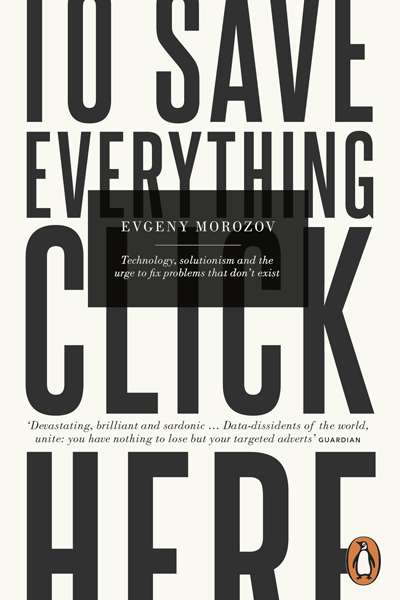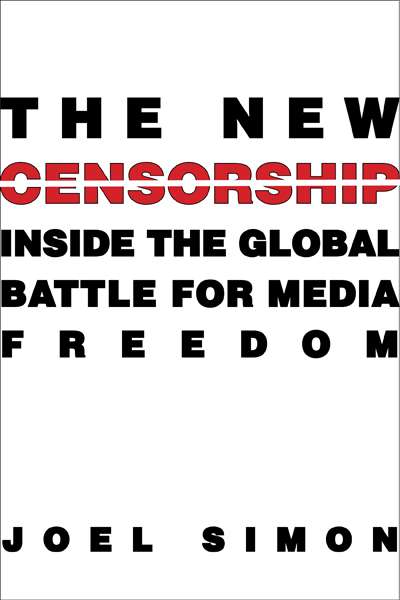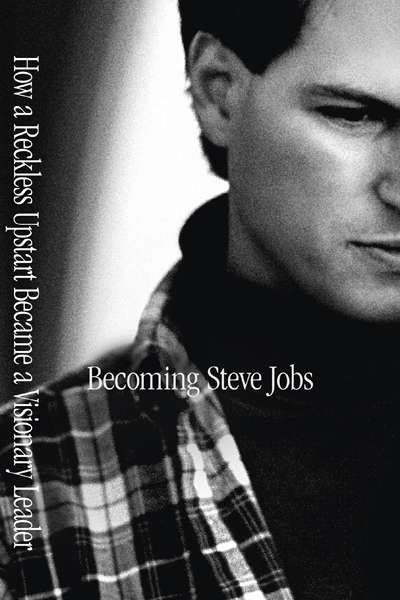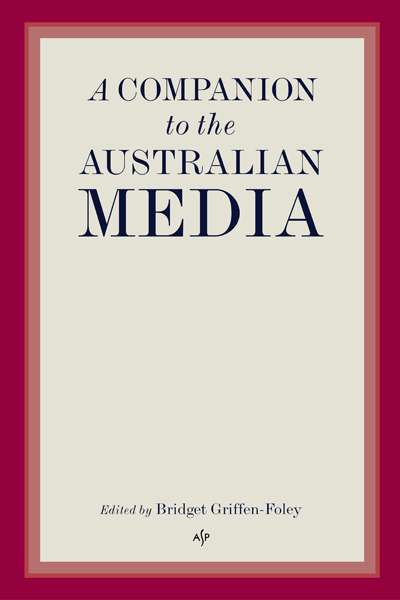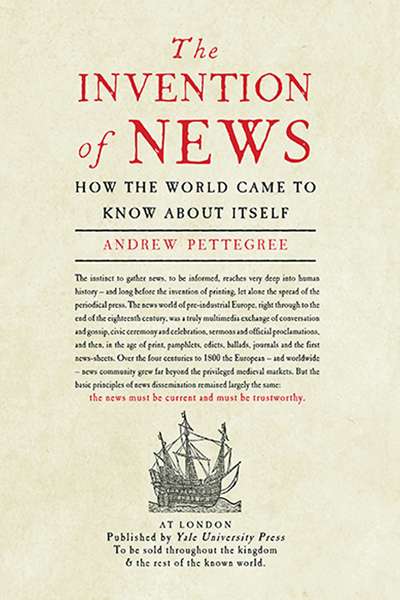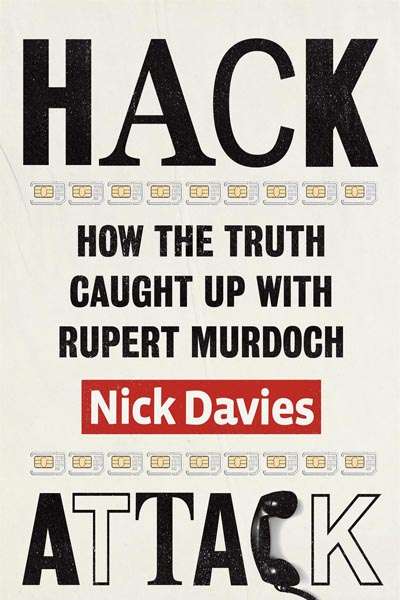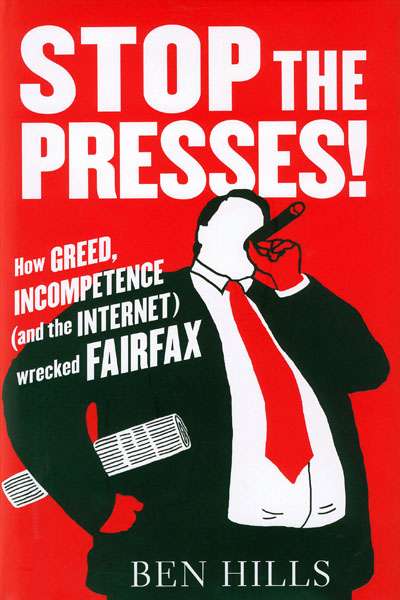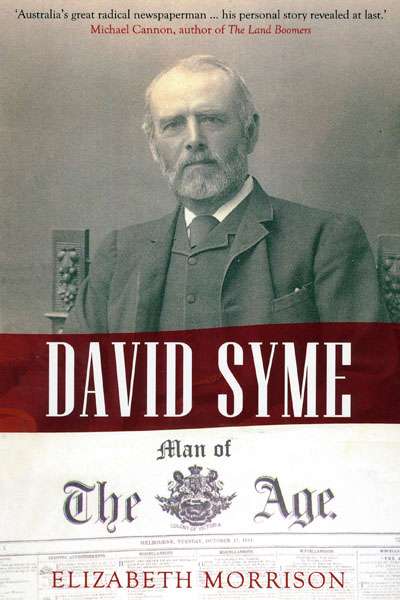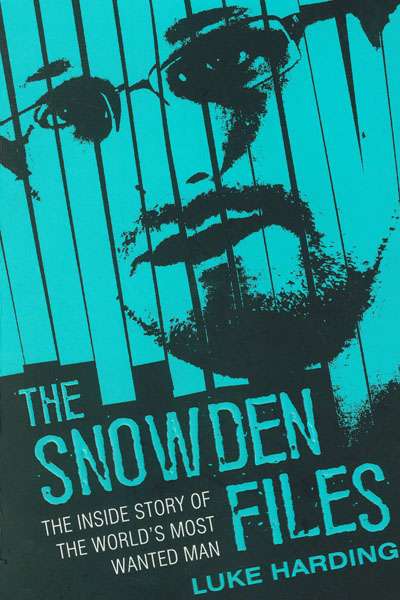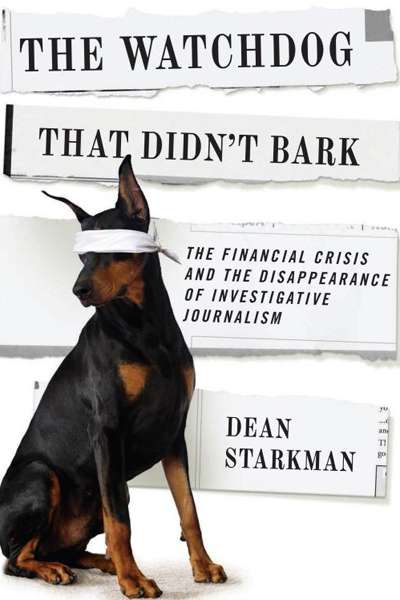Media
To Save Everything, Click Here: Technology, Solutionism and the Urge to Fix Problems That Don't Exist by Evgeny Morozov
What are the implications of the ever-accelerating revolution in information communication technology on our lives? Is the Internet a force for good, for increased freedom and democracy? Or are we so in thrall to the prophets of Silicon Valley that we have lost sight of the perils that lie in ‘big data’, the extension of algorithms and quantification into every ...
The New Censorship: Inside the Global battle for media freedom by Joel Simon
Joel Simon has had more friends murdered than I have friends.Such is the burden of the executive director of the Committee to Protect Journalists, an organisation that promotes press freedom worldwide. As recent events painfully illustrate, journalism can be a dangerous vocation. ‘Murder, after all,’ Simon writes, ‘is the ultimate form of censorship.’
< ...Becoming Steve Jobs: How a reckless upstart became a visionary leader by Brent Schlender and Rick Tetzeli
I was working as a technology journalist in San Francisco when Steve Jobs made his messianic return to Apple. It was September 1997, the height of the dotcom boom. In the city, the old industrial tracts between Market Street and China Basin were being transformed by start-ups. People were living on free pizza and hoping to strike it rich with stock options in an ini ...
A Companion to the Australian Media edited by Bridget Griffen-Foley
This impressive collection of knowledge ranges from the history of newspapers and the biographies of radio and television stars to the rise of media owners (the first of whom, Andrew Bent, arrived as a convict in 1812). It covers war reporting, food and sports coverage, children’s radio, blogging and podcasting, and even the life of the radio serial Blue Hills, which ran from 1949 to 1976.
... (read more)The Invention of News: How the world came to know about itself by Andrew Pettegree
When St Paul’s burned down in 1561, no one was in any doubt that it was the work of God. The debate – and it was a furious one in the press of the time – concerned what this said about His views on the abolition of the mass. Contemporary press reports of the Battle of Lepanto, the St Bartholomew’s Day Massacre, and the Spanish Armada show how reporting of even the most important events was subject to wide variations in timeliness and accuracy. The church, with its networks of pilgrims and crusaders, played an important role in gathering and disseminating news in the late Middle Ages, but it was often merchants who were behind major advances, sometimes setting up their own networks. When the noise of conflicting reports became overwhelming, they tended to share information and to let everyone work out for themselves, or with friends, what they wanted to believe.
... (read more)Hack Attack by Nick Davies & Beyond Contempt by Peter Jukes
Bettina Jordan-Barber will soon face trial for receiving around £100,000 over nine years from the Sun newspaper for supplying information while she was an official in the Ministry of Defence. Both the prosecution and the defence during the recent UK ‘phone hacking’ trial accepted that the payments had been made, and that Rebekah Brooks, while she was editor of the Sun from 2003 to 2006, authorised eleven of them totalling £38,000. According to Brooks, it never occurred to her that the person her reporter, who will also soon face trial, referred to in his emails as his ‘number one military contact’ and ‘ace military source’ might be someone in the military. The jury accepted this profession of ignorance, so Brooks was found not guilty of ‘conspiracy to commit misconduct in public office’.
... (read more)Fairfax Media, which has churned out millions of words since its beginnings in Sydney in the 1830s, has itself inspired hundreds of thousands of words in the last year or so. First came Colleen Ryan’s Fairfax: The Rise and Fall (June 2013), followed by Pamela Williams’ Killing Fairfax (July 2013). Now comes Stop the Presses! by Ben Hills, a veteran investigative journalist who would no doubt self-identify as a ‘Fairfax lifer’, like many characters in his book. Just in case the theme of these tomes isn’t clear, we have Hills’s subtitle: How Greed, Incompetence (and the Internet) Wrecked Fairfax.
... (read more)David Syme made his name and his fortune in newspapers – specifically The Age – and his life’s course might be compared with the workings of a gigantic web offset press.
I have watched such machines at work. They start off slow; the rolls of naked newsprint snake by gently, round and round. When the presses roar to life the noise is astonishing; the paper is stretched like the thinnest of skins as it flashes, smooth and furious, through the machine, soaking up words and pictures. If the paper breaks, the whole thing unravels and the run must be reset. So it was with Syme, the brilliant but perplexing man who owned and ran The Age from 1860 until his death in 1908. At its peak in the 1880s, only the London dailies had higher circulations. One in ten people in Melbourne bought a copy.
... (read more)The Snowden Files by Luke Harding & No Place to Hide by Glenn Greenwald
1984 is back. George Orwell’s nightmare vision of governmental surveillance, secrecy, and deception clearly resonates with the revelations first leaked to the Guardian by former National Security Agency (NSA) contractor Edward Snowden. Indeed, it is practically impossible to find an account of the Snowden affair without at least one ‘Orwellian’ adjective dropped into the mix. Sometimes it comes qualified: Justice Richard J. Leon, District Court Judge for the District of Columbia ruling in December 2013 that the bulk collection of US mobile phone records was probably unconstitutional, called the NSA program ‘almost Orwellian’. This decision is currently under appeal.
... (read more)The Watchdog That Didn’t Bark: The Financial Crisis and the Disappearance of Investigative Journalism by Dean Starkman
Gideon Haigh reviews a major new study of the failure of investigative journalism during the 2008 GFC. He argues that journalists became invested in the economic boom, to their cost.
... (read more)

